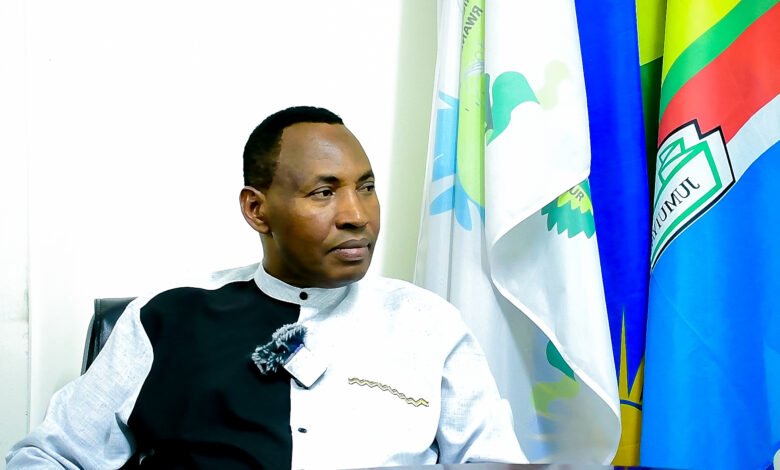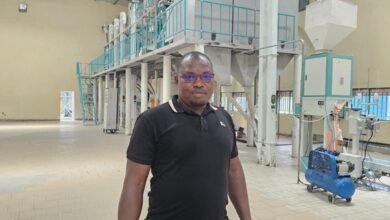Prof. Callixte Kabera : « Cultural Heritage Is a Hidden Wealth Africa Can Fully Harness »
The rise of international hotel investments in Africa signals economic optimism, creating jobs and boosting local businesses. Experts stress the need to preserve cultural authenticity through tourism offerings, ensuring inclusive growth while empowering communities and safeguarding Africa’s unique heritage. Professor Callixte Kabera, Vice Chancellor of East African University of Rwanda, Expert in Tourism with 18 years of experience, member of the Rwanda Tourism Chamber and heading the Association of Hospitality and Tourism Educators in Rwanda. Based in Kigali, he shares his analysis on the revival of African tourism and its current challenges, balancing growth with cultural rootedness. Interview.

By Teddy KABERUKA
The post-Covid tourism recovery in Africa seems real. Which countries or models do you find most inspiring today?
Rwanda is a good model in terms of tourism recovery after COVID-19 because the government laid down good strategies to help business players in the tourism sector. The economic recovery fund helped a lot the tourism sector to recover and the government has been working together with the private sector to make sure they put the right measures.
Mauritius is a good model in many ways. First of all, being a touristic country but also a country that has been leading in terms of putting in place good policies to support business. In doing business ranking Mauritius, Rwanda and South Africa are the top three because of policies in place that continue to attract many investors. There are also others which are doing very well in tourism such Kenya, Morocco and South Africa to name few.
How do you interpret the massive arrival of international hotel groups such as Marriott, Radisson, and Accor on the continent?
You know these days we were talking about renaissance of Africa and these messages have been circulating among investors. Investors try always to explore where they are benefiting more and this African continent have a lot of potential opportunities for investment. Investors are also looking at countries where they can invest and generate a high return on their return on investment. We observe many international brands coming to invest in Africa looking for countries with no corruption, with good infrastructure, with peace and security as well as human resource at cheap labor cost. Some countries in Africa built exemplary leadership that are attracting many investors in minerals, agriculture and hospitality. However, transport is very costly, air transport is still very costly even road transport is still very costly. I think the most important element is to put policies that support the African common market so that countries can trade among themselves. The visa cost to travel in Africa are costly if we can have one single visa and traveling in North African countries like in one country that would help people to move and ease the trade among within Africa. Some countries such as Rwanda and Kenya facilitated the travelers by making the visa entry available on arrival. The opening of international hotel chains like Radisson Hotel Group, Accor, Marriott other band such as Zaria Court in Africa signals renewed confidence in the continent’s tourism and hospitality sector. It reflects strong growth potential, increased investor interest, and a positive outlook for economic recovery.
What public policies/incentives are needed to strengthen an African hospitality model that is competitive, inclusive and rooted in local realities?

Policies that promote peace and security among countries, those policies will be very welcome. African countries need to work with international organizations for favorable policies to business development. For instance, the World Trade Organization, countries need to work with the organization to make sure that policies are fine and not compromising development. But also I think, policies should enhance the capacity of local people to do business and understand what is happening locally and internationally. Nowadays the world is becoming digitalized and once the world is digitalized, you understand that local people need also to embrace the use of technology to make sure that business flourish. So I think investment in people is also a key area where policies can target. People are asset of this continent.
Countries need to develop infrastructure such as road, railways, ports and airport to easy the movement of people and goods.
In your opinion, how can African countries preserve cultural authenticity in their high-end tourism offerings?
I understand that African need to preserve the cultural heritage, which is very rare compared to what is in European countries. So the best way to preserving is to make is a tourism product. That is part of what tourists especially high-end tourists should come to see. That why investing in preserving the cultural heritage of African countries is a very important segment where much more investment should be put. If you see statistics of tourist that comes to visit the African continent, the big majority comes to visit the wildlife. That is very important. Africa is very rich in terms of wildlife, but also rich in culture. But unfortunately, many countries are destroying their cultural heritage. So the best way is to safeguard the cultural heritage and to make it modern so that it evolves with time, but without harming and losing the authenticity of our culture. Cultural heritage constitute a hidden wealth which the African can benefit. Countries need to put policies and programs to safeguard the cultural heritage and also modernize them using technology, using AI nowadays. Countries have different opportunities in tourism such religious places, community activities and cultural heritage which can be packaged well and be offered for tourism experience.
Does the growth of luxury hospitality benefit local communities? Which practices should be strengthened?

Yeah, I think local communities benefit a lot. It starts from the government where certain percentage of the revenue generated from the tourist goes to finance the community project supporting the local citizen welfare. For instance, the Government of Rwanda allocates 10% of revenues from tourism to local communities. Also, local communities benefits directly from tourism activities in their region by being employed in tourism activities and also establishing different business such as transport, tour guiding, souvenir shops, restaurant, etc. Furthermore, local farmers benefits from tourisms by producing foods and sell them to restaurants and hotels. Local communities need to be grouped in association and cooperatives so that they can organize their activities better to meet expectation of the tourism industry.
What role should African states play in balancing economic attractiveness and identity preservation in the sector?
African states need to invest in infrastructure and facilities and more so in human development of training highly qualified labor. For instance, if you train somebody on airline services let him or let her taste first of all what is an airline. Also, if you want to train somebody on how to serve champagne, the trainee has to practice it many times. Business leaders from private sector in Africa must engage in training; without full industry involvement, skill development remains incomplete and limits future expertise.
We see tourism industry embracing also sports. How do you think the African continent should benefit from the sport to grow the tourism industry?
Actually that is the trend. African continent has talents in different sport disciplines.
Being football, basketball, volleyball and different disciplines, we are very talented. You will always see when there is international competition; Africans make a difference when participate.
It is good that now Africans are benefiting on the global sport arena. If you look at the industry of sports in the UK, for instance the football industry is making a lot of money with millions paid to soccer players; I think this is the way for Africa.






